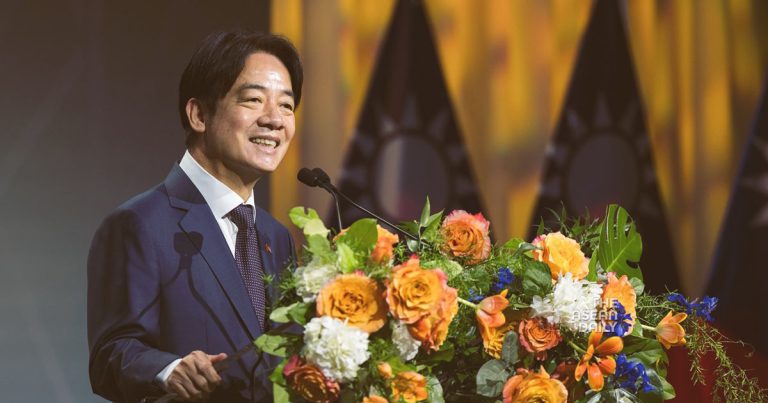14-8-2023 (TAIPEI) William Lai, Taiwan’s Vice President and a frontrunner in the upcoming presidential elections, has delivered a resolute message of defiance during his visit to the United States, a journey that has drawn strong condemnation from Beijing. Lai’s steadfast stance underscores Taiwan’s commitment to its democratic values and its determination to navigate a complex geopolitical landscape.
Lai’s US visit, officially designated as a transit stop en route to Paraguay for the inauguration of its new president, has sparked controversy. While Taiwan and the US maintain that these stopovers are routine, China has vehemently criticized the move, labeling Lai a “troublemaker” and a separatist.
Addressing supporters during a luncheon event in New York, Lai conveyed a powerful message, asserting that Taiwan’s safety translates to global stability. He emphasized that in the face of authoritarian threats, Taiwan will not waver or bow down, resolutely upholding the principles of democracy and freedom. According to Taiwan’s presidential office, Lai stated, “No matter how great the threat of authoritarianism is to Taiwan, we absolutely will not be scared nor cower, we will uphold the values of democracy and freedom.”
China’s disapproval of Lai stems from his advocacy for Taiwan’s independence, a stance that Beijing considers a red line. Lai’s self-identification as a “practical worker for Taiwan independence” has further strained relations between Taiwan and China. Beijing, which regards Taiwan as part of its territory, has not ruled out the use of force to assert its control over the island.
Despite the tensions, Lai reiterated his commitment to maintaining peace and the status quo. He expressed a willingness to engage in dialogue with China on the basis of dignity and equality, with the aim of seeking peace and stability. Lai’s position underscored Taiwan’s resolve to protect its sovereignty and emphasized that the decision regarding Taiwan’s future rests with its people.
Importantly, Lai reaffirmed that the formal names of Taiwan and China do not imply subordination. The Republic of China, Taiwan’s official name, and the People’s Republic of China exist independently, reflecting Taiwan’s distinct identity.
The US stopovers, involving New York and San Francisco, have prompted calls for restraint from both Taipei and Washington. Both nations are eager to prevent any escalation and have urged China to avoid provocative actions in response.
Amid these developments, Taiwan anticipates potential military exercises by China near its borders. Analysts speculate that these maneuvers may be designed to intimidate voters in anticipation of next year’s elections and instill a sense of apprehension regarding potential conflict.
Ingrid Larson, Managing Director of the American Institute in Taiwan, attended Lai’s speech. The Institute is a US government-run non-profit organization responsible for unofficial relations with Taiwan.
The Taiwan issue remains a pivotal diplomatic challenge for China, with tensions between Beijing and Washington simmering over the island’s status. The United States, Taiwan’s primary international supporter and arms supplier, remains a significant factor in the ongoing geopolitical dynamics of the region.




